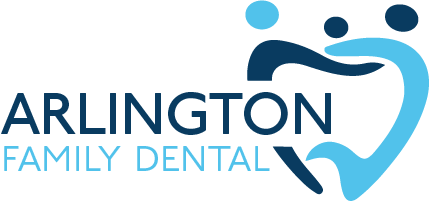
07 May Is Mouthwash Necessary?
You know that good oral health can benefit your overall health. If you’re already brushing, flossing, and visiting your dentist regularly, then you may be wondering if there’s anything else you can do. A mouth rinse could be the answer, but is mouthwash necessary?
Mouthwash can make a great addition to your daily oral health routine. However, it’s no replacement for brushing and flossing. While there are many different types of mouthwash on the market, the brand isn’t the most important thing to look for — it’s the type that matters. There has been concern that mouthwash may increase your risk of mouth cancer. Fortunately, those claims are unfounded.
Is mouthwash necessary?
Mouthwash isn’t necessary in and of itself. Many people use mouthwash because they enjoy the invigorating sensation it gives after flossing and brushing. But mouthwash provides more than a sensation when used properly. What mouthwash users may not realize is that it acts as the finishing touch on your oral health routine.
Also known as oral rinse, mouthwash helps rinse out any harmful bacteria and debris. In some cases, they may have been missed by brushing and flossing. In others, they may have been loosened up and mouthwash is the final step in getting rid of it. On the other hand, it should be pointed out that water does the exact same thing.
Types of Mouthwash
The ADA breaks mouthwash down into two types — cosmetic and therapeutic. It’s up to the FDA to designate whether a mouth rinse is cosmetic, therapeutic, or both. The main benefit of cosmetic mouthwash is to freshen your breath. They don’t usually have any other special additives or benefits beyond that.
Therapeutic mouthwash, on the other hand, can provide multiple benefits thanks to its chemical and biological additives. This is even true when it comes to freshening your breath. For instance, cosmetic mouthwash masks your bad breath, but therapeutic mouthwash kills the bacteria that causes bad breath in the first place.
Therapeutic mouthwash can address a host of oral health issues, including:
- Dry mouth
- Gingivitis
- Cavities
- Pain relief
- Whitening
- Dry socket
Dry Mouth
Also known as xerostomia, dry mouth is a reduction in the amount of saliva that you produce. A lack of saliva can increase your chance of cavities, so mouthwash with fluoride would be ideal. You’ll want to avoid brands with alcohol since they can actually dry out your mouth and worsen your condition.
Gingivitis
Gingivitis, an early form of gum disease, is a bacterial infection that can have huge repercussions for your entire mouth. It’s best to treat the infection in its early stages when it can still be controlled with good oral hygiene and regular dental appointments. You can use mouthwash to reduce gingivitis-causing plaque in your mouth.
Cavities
Some oral rinses can help fight or even reverse tooth decay with remineralization. When looking for a mouthwash to prevent cavities, choose one with active ingredients such as cetylpyridinium or chlorhexidine. Keep in mind that cetylpyridinium and chlorhexidine may cause staining, so talk to your dentist, first.
Pain Relief
Your dentist may recommend a special type of mouthwash if you’re experiencing oral pain. These contain topical anesthetics such as benzocaine and lidocaine to alleviate pain and discomfort. These types of mouthwashes often require a prescription from your dentist.
Whitening
Some therapeutic mouthwashes have been formulated to help whiten your teeth. Like in-office and other at-home treatments, they whiten your teeth over time. However, it will take much longer to see the effects of mouthwash than some of the other options available through our office.
Dry Socket
Dry socket (alveolar osteitis) is a common issue following having your wisdom teeth removed. It occurs when the naturally-forming clot following an extraction is dislodged. This can result in intense pain a couple of days after your procedure.
Mouthwashes containing chlorhexidine have been shown to be effective in preventing this problem. But again, this kind of mouthwash will most likely require a prescription from your dentist.
How to Use Mouthwash
Different types of mouthwash may be more effective when added to your routine in a certain order. Make sure to read the instructions first and follow them closely. With that said, it’s most common to save it for the end of your oral care routine.
To get the most out of your mouthwash:
- Floss between your teeth
- Brush
- Rinse with mouthwash
It doesn’t take a lot to get the job done — 3 to 5 teaspoons ought to do it. Fortunately, you don’t have to keep a teaspoon in your bathroom. Most bottles of mouthwash have a line in the cap indicating how much to use.
When should I use mouthwash?
Mouthwash can be used just about any time. It’s best to use it when you have time to complete your entire oral care routine. For example, you should be flossing at least once a day after eating. If you floss right before you go to bed, then that would be the optimal time to include mouthwash.
Of course, you don’t only have to wait until you brush and floss. Mouthwash can come in handy if you’ve had a delicious but garlicky meal, or if you use tobacco and want to freshen up your breath. Keep in mind that quitting tobacco would greatly reduce your need for mouthwash and improve your overall dental health.
Is mouthwash safe?
There has been some concern over the years that mouthwash may be connected to oral cancer. This is because alcohol is a risk factor for oral cancer and it’s an active ingredient in many types of mouthwash.
Fortunately, the research doesn’t bear this out. An analysis of previous studies found no “significant association” between oral cancer and its use. It still poses a danger if swallowed, so make sure that you always spit it out when you’re done swishing.
While mouthwash doesn’t have any negative effects, your dentist may be able to offer recommendations. This could be especially useful if you have a condition such as gingivitis, dry mouth, or tooth decay.
Mouthwash can be a great addition to your daily oral care routine. However, it’s no replacement for brushing and flossing. It comes in two types — cosmetic and therapeutic. Talk to your dentist about which would suit your needs best. Make sure to follow the instructions when using it and never swallow. Other than that, mouthwash is safe and has no connection to oral cancer.
Would you like to know what you can do to support your oral health? Schedule your appointment today for your consultation!
Arlington Family Dental is open 8 a.m. – 5 p.m, Monday through Thursday to help with all your dental needs. Call us at (229) 725 – 4545 or schedule an appointment online.

Sorry, the comment form is closed at this time.